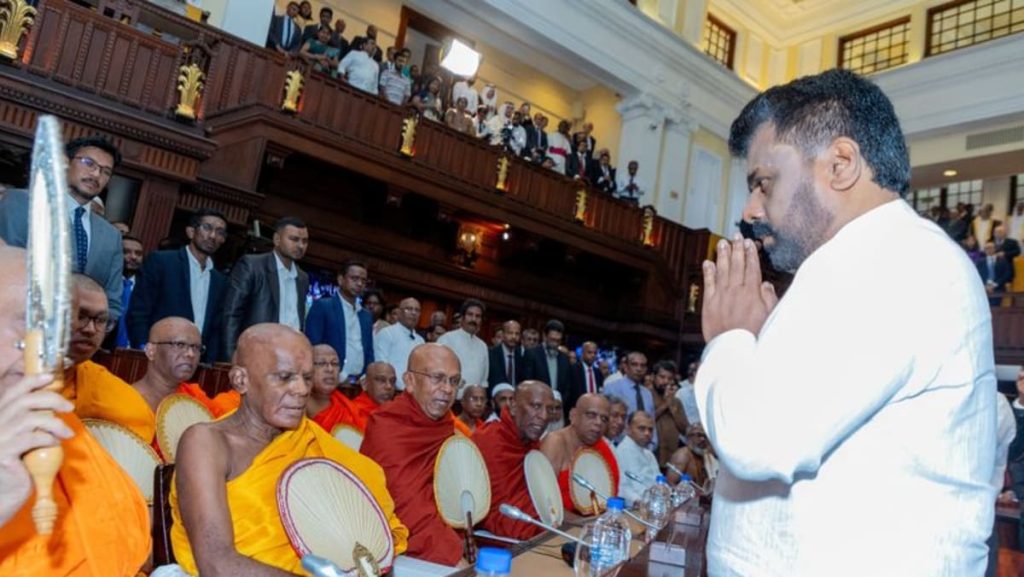The Rajapaksa family, which dominated Sri Lankan politics for years, was ousted in 2022 following mass protests over the economic crisis. The new President, Anura Kumara Dissanayake, a former member of the controversial JVP party, has promised to rule democratically despite concerns about the party’s violent past. Many are hopeful that Dissanayake’s leadership will bring positive change to the country, but there are still doubts due to Sri Lanka’s recent democratic struggles.
Sri Lanka is currently facing severe financial difficulties, exacerbated by the IMF bailout package that imposed austerity measures and tax hikes on the population. Dissanayake has pledged to ease the burden on the people by lowering taxes and utility bills, going against some of the IMF conditions. He plans to renegotiate terms with the fund in order to provide relief for those struggling to make ends meet. This approach has generated optimism among the public, who are hopeful that the new government will prioritize the needs of the people.
Despite Dissanayake’s promises, there are concerns about the ability of the JVP party to govern effectively given its history of violence and failed uprisings in the 1980s. While Dissanayake has expressed regret for the party’s actions in the past, there are still doubts about its commitment to democracy and human rights. It remains to be seen how the new government will address these concerns and navigate the challenges facing the country.
The economic crisis in Sri Lanka has had a profound impact on the lives of millions of people, leading to widespread hardship and discontent. The IMF bailout, while intended to stabilize the economy, has placed a heavy burden on the population, making it difficult for many to make ends meet. Dissanayake’s pledge to ease these hardships by renegotiating with the IMF and implementing policies to lower taxes and utility bills has been met with cautious optimism, with hopes that it will bring relief to those struggling the most.
The political landscape in Sri Lanka has undergone a significant shift with the ousting of the Rajapaksa family and the election of Anura Kumara Dissanayake as president. The new government faces the challenge of rebuilding trust in democracy and addressing the economic crisis that has left many in dire straits. Dissanayake’s leadership will be closely watched as he navigates these challenges and works to fulfill his campaign promises while balancing the needs of the population with the demands of international lenders like the IMF.
Overall, the future of Sri Lanka remains uncertain as the country grapples with the aftermath of the economic crisis and transitions to a new political leadership. Dissanayake’s presidency represents a potential turning point for the country, with hopes for positive change tempered by lingering concerns about the past actions of the JVP party and the challenges of governing in a turbulent political environment. The coming months will be crucial in determining the direction of Sri Lanka’s future and whether the new government can deliver on its promises to improve the lives of its citizens.













